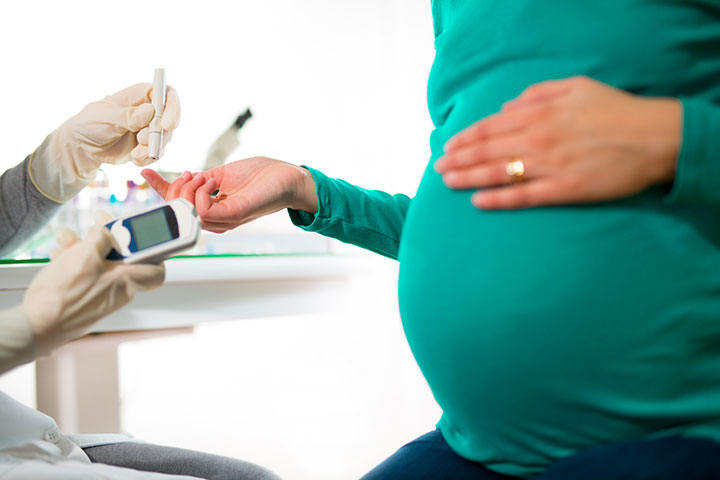Calcium is an essential mineral responsible for the normal formation and functioning of the heart, nerves, bone, muscles, and teeth development (1). And, calcium deficiency in babies, termed hypocalcemia, might lead to complications in the growth and bone development of infants. Read more about the types, causes, symptoms, and treatment of hypocalcemia in babies.
Types Of Hypocalcemia
Hypocalcemia is characterized by lower levels of calcium in the circulating blood. It is termed neonatal hypocalcemia in babies. Your baby can get it due to different causes and at different times. Neonatal hypocalcemia is classified into two types (2):
Early hypocalcemia
It happens in the first two to three days of a baby’s life and is most likely curable.
Late hypocalcemia
It starts in the first week or a few weeks after the baby’s birth and is less likely to disappear.
Causes Of Calcium Deficiency In Babies
A lack of adequate calcium in the diet can lead to calcium deficiency in adults. For babies, the causes can include the following (1) (3):
- Low oxygen availability during childbirth
- Maternal diabetes
- Certain medicines such as Gentamicin
- Feeding your baby formula milk or cow’s milk with excessive phosphate.
- Vitamin D deficiencies since vitamin D promotes calcium absorption in the body.
- Certain infections
- Stress due to some severe illnesses
- Rare reasons such as DiGeorge Syndrome (DGS), a defect in chromosome no. 22.
- Congenital hypothyroidismiXA condition in which the thyroid gland is absent or partially developed, causing low levels of thyroid hormone.
- Low vitamin D or calcium in the mother
- Premature babies
- Underactive parathyroid glandsiXLow production of parathyroid hormone causing decreased blood calcium levels and increased phosphorus levels in the body.
- Low magnesium levels
- Babies with kidney problems that can lead to kidney failure
Symptoms Of Calcium Deficiency In Babies
Babies exhibit several symptoms while suffering from calcium deficiency, which includes (1) (3)
- Irritability
- Insomnia
- Muscle cramps
- Muscle aches
- Jitteriness
- Tremors
- Poor feeding
- Lethargy
- Twitching
- Jerking movements of limbs
- Lowered heart rate
- Low blood pressure
- Seizures or convulsions due to a reduction in oxygen supply to the brain
Treating Calcium Deficiency In Neonates
Early hypocalcemia usually resolves by itself without any intervention. However, in some cases, babies with late hypocalcemia may need calcium supplements in their feedings or via intravenous administration (IV) (3).
Blood tests may be taken to determine the infant’s nutritional status. Then, the IV fluids administered may be tweaked accordingly to meet the infant’s needs in terms of essential nutrients such as magnesium, potassium, sodium, and calcium (4).
It is essential to consume calcium-rich foods during pregnancy to promote musculoskeletaliXThe combination of bones, muscles, cartilage, ligaments, tendons, and their connective tissues.and nervous system health. Milk and milk products such as yogurt, kefir, and cheese are rich sources of calcium. Oranges, bok choy, dates, broccoli, almonds, tofu, dried figs, kale, and oatmeal are other calcium-rich foods you can incorporate into your pregnancy diet. You may take calcium supplements as per your doctor’s recommendations during pregnancy and breastfeeding even though calcium-rich foods are consumed. Not consuming enough calcium can also increase your risk of developing osteoporosisiXA condition that weakens bones, increasing the chance of sudden, unsuspected bone fractures.later.
Key Pointers
- Low oxygen availability during childbirth, maternal diabetes, excessive phosphate consumption from milk, and vitamin D deficiency can cause hypocalcemia.
- Symptoms include irritability, insomnia, poor feeding, lethargy, twitching, jerking movements, lowered heart rate, low blood pressure, and seizures.
- Early hypocalcemia can resolve on its own, but late hypocalcemia requires treatment with calcium supplements.
- Calcium-fortified bread and juice, canned fish, green leafy vegetables, and milk products can help increase calcium levels in the baby.













